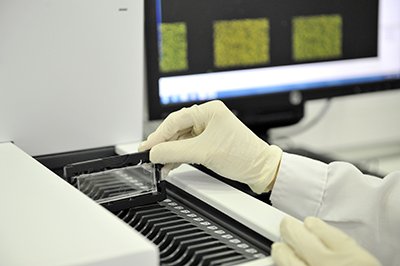IB Research: changes in the age at which women become mothers. Changes in chromosomal abnormalities in the embryo
27-11-2015

Social and economic changes have led to motherhood being postponed and, as a result, fertility issues in couples have increased. Prognosis is poorer in older patients when it comes to IVF treatment. Amongst other things, this is due to the high percentage of embryos with chromosomal abnormalities.
This is the topic covered by Instituto Bernabeu in one of its research projects accepted for the 8th edition of ASEBIR, the bi-annual congress organised by the association of human reproduction biology specialists. The research analyses chromosomal abnormalities in couples’ embryos using a technique called Comprehensive Chromosomal Screening (CCS). One of the most significant conclusions drawn is that the percentage of embryos with chromosomal abnormalities increases enormously with the mother’s age. For example, 31.3% of embryos have chromosomal abnormalities in couples where the mother is under 30 years of age and the percentage increases to more than double (65.7%) when the mother is over 40.
Additionally, the type of abnormality detected changes depending on the age group. Human beings have 2 copies of each of the 23 chromosomes in our genome. Chromosome monosomy refers to when only one copy is present and trisomy is the term used when 3 copies are present. Embryos with monosomy and/or trisomy are not compatible with life and are incapable of implanting in the uterus.
In the study carried out, the number of monosomoies in the embryos analysed does not change as the mother’s age increases. However, trisomies do increase and this occurs mainly in chromosomes 2, 11, 13, 15, 16, 21 and 22.
Embryo selection using Comprehensive Chromosomal Screening (CCS) in IVF treatment can correct the deleterious effect which the mother’s age has on embryo implantation since it allows for the selection of chromosomally normal embryos.
‘Chromosomal abnormality type detected in aneuploidy embryos has a connection to the mother’s age‘ Ortiz, José A, Lledo, B., Morales, R., Ochando I., Ll. Aparicio, J. and Bernabeu, R.
